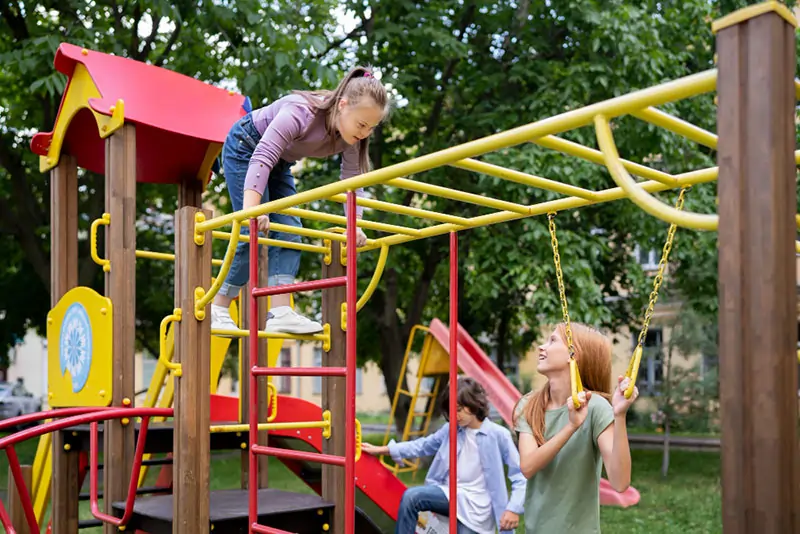6 Tips for Teachers When Talking With Kids About Social Media

Undeniably, the digital world is second nature to our youngsters. Ten years back, attempts to curb internet use by parents and teachers were common. Yet, with tech-savvy kids and the ever-present internet, those days are gone. The smart move? Find a middle ground – accept their online presence, but establish clear, mutually agreed guidelines for positive internet use.
So, how can teachers help parents navigate this?
1. Get the Basics Right
As educators, it’s wise to hold off on internet access till kids are around 8 or 9. This age is widely seen as suitable for introducing basic online know-how. Be the first to guide them, ensuring they’ll come to you with any online concerns.
Make web browsing a shared, enjoyable activity. Avoid overhyping the internet’s magnitude. Take note, over 36% of America’s population grapples with internet addiction, you wouldn’t want your students falling into this statistic.
Explore child-friendly websites together, such as gaming platforms. This approach encourages open dialogue about their positive and negative online experiences.
2. Be Alert for the Signs That Social Media is Having a Negative Effect on Kids in Your Classes
Social media, while a powerful tool, can negatively affect our students. We must stay alert to these signs and intervene when necessary.
- Increased Irritability and Anxiety: A sudden change in a student’s behavior could be a red flag. If they seem more irritable or anxious than usual, try to understand if excessive social media use is the cause.
- Obsession with Peer Feedback: Children who frequently use social media often become overly sensitive to peer feedback. Watch for students who seem overly concerned about others’ opinions.
- Online Safety Risks: Cyberbullying and online predators are real threats. It’s essential to educate students about online safety and encourage them to report any inappropriate behavior they encounter.
- Disruption to Homework or Studies: If students prioritize social media over their homework, they may develop an unhealthy relationship with it.
- Signs of Bullying: Watch for signs of online bullying, such as sudden withdrawal or emotional distress. Open communication lines can encourage students to share their experiences.
Should you suspect that a student of yours has been adversely affected by social media, you can get more information about social media youth harm claims in this article. It provides valuable insight into the legal resources available for such situations.
3. Make Internet usage regulations
When discussing social media and internet usage with kids, we must stress online privacy’s importance.
- First, ensure they understand the golden rule: Never share personal information online. We should help them comprehend how ill-intentioned individuals can exploit this information, leading to stalking, harm, or even life-altering consequences. If they ever need to disclose personal details online, encourage them to do so under your watchful eye.
- Secondly, openly discuss the types of websites they’re allowed to visit and those they should steer clear from. Our young ones are sharp, so merely setting rules won’t cut it anymore.
- Lastly, ensure they grasp online content permanence. Once something is posted online, they might lose control over who uses it and how. They should understand the potential misuse of their content. Establish clear rules about what can be uploaded, viewed and who can access it.
4. Mentor and Monitor
Trust is your starting point, but remember, it’s not a hands-off game. You must be both a watchful guardian and a guiding mentor in your students’ social media journey. Make a habit of keeping an eye on their online activities. But hey, no secret agents here – let them know you’re watching because you care!
Why not dive into the digital world together? Discover how to tweak privacy and security settings on various platforms. Learn to use features like ‘Safety Centre,’ ‘Block,’ and ‘Report.
If you ever stumble upon something that shouldn’t be in your students’ digital playground, file a social media youth harm claim. Let your students know about it too. It’s all about creating a safe, transparent and educational online environment.
5. Establish Limits and Rules
Consistently communicate with your students about instances of cyberbullying that appear in the news. Engage them in dialogues about the importance of filing a social media youth harm claim.
Also, let them understand the disparity between online personas and real-life identities, emphasizing that individuals may not always be as they present themselves on the internet. Reinforce the message that arranging in-person meetings with “friends” made online is a no-go area.
Establish a ‘Consent Checklist,’ agreed upon by your students. This checklist should outline various situations where your students need to seek your approval before taking action. This could include forming digital friendships, disclosing personal details, or posting content online.
6. Teach Digital Etiquette
Each social media platform has its own rhythm and rules. So, we must help our students surf these digital waves with respect and responsibility.
This means guiding them on how to talk the talk – using the right language, jumping into meaningful conversations, understanding and reacting to what they see online, and standing up against cyberbullying.
Let’s help them strike a balance between their online and offline lives. Teach them that it’s okay to unplug from screens during family dinners or friendly get-togethers. After all, while tech can be a super cool companion, it’s not the boss of their lives.
Talking about social media with kids is never an easy task, but it’s necessary to help them not only stay safe online but also have a positive and fulfilling experience with modern technology. The six tips for teachers suggested in this post can develop productive conversations about social media that promote understanding and well-being.


